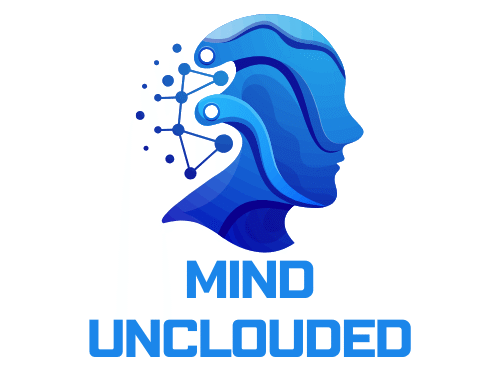I. Introduction
Neck pain is a common issue that many people experience at some point in their lives. While it’s often attributed to physical factors like poor posture or muscle strain, mental health conditions such as anxiety and depression can also play a significant role. These psychological factors can lead to muscle tension and stress-related neck pain, contributing to chronic discomfort. Understanding the connection between mental health and neck pain is crucial for effective management and relief. This article explores how anxiety and depression can cause neck pain and offers insights into addressing this complex interplay between mind and body.
As a licensed physical therapist with over 15 years of experience in treating musculoskeletal disorders, I have observed firsthand the profound impact mental health can have on physical well-being, particularly in the cervical region.
II. Understanding the Mind-Body Connection
The mind-body connection refers to how our mental health directly influences our physical well-being. When experiencing anxiety or depression, the body often responds with physical symptoms like muscle tension, headaches, and neck pain. Chronic stress can lead to inflammation and a weakened immune system, making the body more susceptible to illness. This connection explains why individuals with mental health challenges may experience psychosomatic symptoms, where emotional distress manifests as physical discomfort.
Recognizing this interplay is crucial, as addressing mental health issues can alleviate physical symptoms and improve overall health. Understanding the mind-body connection empowers individuals to take a holistic approach to their well-being, acknowledging that mental and physical health are deeply intertwined.
Drawing from my clinical practice and supported by research, I have seen how addressing mental health can lead to significant improvements in physical symptoms.
III. How Depression and Anxiety Contribute to Neck Pain
Depression and anxiety can significantly impact physical health, often manifesting as neck pain. When experiencing stress or emotional distress, the body releases stress hormones like cortisol and adrenaline, leading to muscle tension, especially in the neck and shoulders. This muscle tension can result in chronic neck pain and stiffness.

Additionally, individuals with depression may experience poor posture due to decreased energy and motivation, further straining neck muscles. Anxiety can lead to sleep disturbances, preventing muscles from relaxing and recovering overnight, exacerbating neck discomfort. These factors create a cycle where mental health issues contribute to physical pain, which in turn can worsen psychological well-being. Understanding this connection is crucial for effective management and relief of neck pain associated with depression and anxiety.
In my experience, patients often report a noticeable reduction in neck pain when their underlying anxiety or depression is addressed concurrently.
IV. The Vicious Cycle: Neck Pain Worsening Mental Health
Chronic neck pain doesn’t just cause physical discomfort—it can also take a toll on your mental health. Persistent pain can lead to frustration, irritability, and feelings of helplessness, contributing to anxiety and depression. This emotional distress can, in turn, increase muscle tension, exacerbating neck pain and creating a vicious cycle. Sleep disturbances are common, as discomfort makes it difficult to rest, further impacting mood and overall well-being.
The constant presence of pain can also lead to social withdrawal and decreased participation in enjoyable activities, intensifying feelings of isolation and sadness. Recognizing this cycle is crucial; addressing both the physical and emotional aspects of neck pain can help break the loop and improve quality of life.
As a clinician specializing in pain management, I emphasize the importance of a multidisciplinary approach to break this cycle effectively.
V. Identifying Psychogenic Neck Pain
Psychogenic neck pain refers to physical discomfort in the neck area that arises from psychological factors, such as stress, anxiety, or depression, rather than from an underlying physical injury or condition. This type of pain is real and can be just as debilitating as pain caused by physical issues.
Key Indicators of Psychogenic Neck Pain:
- Diffuse Pain Location: The pain may not be localized to a specific area and can vary in intensity.
- Inconsistent Symptoms: Pain may fluctuate without a clear pattern or trigger.
- Poor Response to Traditional Treatments: Standard pain relief methods may offer limited or no relief.
- Emotional Correlation: Symptoms often worsen during periods of heightened emotional stress or anxiety.
In my practice, identifying psychogenic pain is crucial, as it requires a tailored treatment approach that addresses both the mind and body.
VI. Diagnostic Approaches
Diagnosing neck pain associated with depression and anxiety requires a comprehensive approach to distinguish between physical and psychological causes.
- Medical History and Physical Examination: A thorough medical history helps identify any previous neck injuries or complaints. Physical examination includes assessing posture, range of motion, and palpating the cervical spine to locate areas of tenderness. Neurological tests evaluate reflexes, muscle strength, and sensory function to detect any nerve involvement.
- Imaging Studies: Imaging techniques like X-rays, MRI, or CT scans are used to assess the structural integrity of the cervical spine. These studies help rule out conditions such as disc herniation, fractures, or tumors that could be causing neck pain. However, they may not detect psychological factors contributing to the pain.
- Psychological Assessment: Evaluating emotional distress, psychiatric conditions, and history of trauma is crucial. Psychological assessments, including questionnaires or structured interviews, help identify stressors or mental health issues that may be exacerbating physical symptoms. This holistic approach ensures that both mind and body are considered in the diagnosis.
With my background in both physical therapy and psychological assessment, I advocate for a comprehensive evaluation to ensure accurate diagnosis and effective treatment planning.
VII. Management and Treatment Strategies
Effectively managing neck pain associated with depression and anxiety requires a multifaceted approach that addresses both physical and psychological aspects.
- Physical Therapies:
- Exercise Therapy: Engaging in regular physical activity, such as walking, swimming, or yoga, can help reduce muscle tension and improve overall mood.
- Cervical Flexor Muscle Training: Targeted exercises focusing on deep neck flexor muscles have been shown to reduce pain intensity and alleviate anxiety and depression levels.
- Exercise Therapy: Engaging in regular physical activity, such as walking, swimming, or yoga, can help reduce muscle tension and improve overall mood.
- Psychological Interventions:
- Cognitive Behavioral Therapy (CBT): CBT helps individuals identify and modify negative thought patterns, reducing anxiety and the physical repercussions of stress, such as neck pain.
- Progressive Muscle Relaxation (PMR): PMR involves tensing and then slowly relaxing each muscle group to reduce stress and promote relaxation.
- Cognitive Behavioral Therapy (CBT): CBT helps individuals identify and modify negative thought patterns, reducing anxiety and the physical repercussions of stress, such as neck pain.
- Lifestyle Modifications:
- Stress Management Techniques: Practices like meditation, mindfulness, and deep breathing exercises can help relax muscles and decrease tension in the neck.
- Sleep Hygiene: Ensuring adequate sleep with proper neck support is essential for stress reduction and muscle recovery.
- Stress Management Techniques: Practices like meditation, mindfulness, and deep breathing exercises can help relax muscles and decrease tension in the neck.
- Medical Interventions:
- Medications: In some cases, antidepressants, muscle relaxants, or anxiolytics may be prescribed to manage symptoms.
- Medications: In some cases, antidepressants, muscle relaxants, or anxiolytics may be prescribed to manage symptoms.
A holistic approach combining these strategies can effectively alleviate neck pain associated with depression and anxiety, improving overall well-being.
VIII. Preventive Measures
Preventing neck pain associated with anxiety and depression involves adopting healthy habits that address both physical and mental well-being.
- Maintain Good Posture: Proper posture reduces strain on neck muscles. Ensure your workstation is ergonomically friendly:
- Adjust your chair so your feet are flat on the floor.
- Position your monitor at eye level to avoid craning your neck.
- Keep your shoulders relaxed and elbows close to your body.
- Adjust your chair so your feet are flat on the floor.
- Engage in Regular Physical Activity: Regular exercise strengthens muscles and reduces stress. Activities like walking, swimming, or yoga can alleviate tension and improve mood.
- Practice Stress Management Techniques: Incorporate relaxation methods such as deep breathing, meditation, or progressive muscle relaxation to manage stress effectively.
- Ensure Quality Sleep: Adequate sleep is vital for muscle recovery. Maintain a consistent sleep schedule and create a restful environment to promote relaxation.
- Stay Hydrated and Eat a Balanced Diet: Proper nutrition and hydration support muscle function and overall health. Avoid excessive caffeine and alcohol, which can contribute to dehydration and muscle tension.
In my clinical experience, patients who incorporate these preventive measures report a significant reduction in neck pain and an improvement in overall quality of life.
IX. When to Seek Professional Help
If your neck pain persists beyond a few days, worsens, or is accompanied by symptoms like numbness, tingling, weakness, or fever, it’s essential to consult a healthcare provider. These could indicate underlying conditions such as nerve compression, infection, or other serious issues.

Additionally, if your neck pain significantly impacts your daily activities, sleep, or emotional well-being, seeking professional help is crucial. A healthcare provider can assess your symptoms, provide a proper diagnosis, and recommend appropriate treatments to alleviate pain and address any contributing factors. Addressing both physical and mental health aspects is vital for effective management and recovery.
As a healthcare professional, I emphasize the importance of early intervention to prevent chronic pain and associated mental health issues.
X. Conclusion
Neck pain is a prevalent issue that can significantly impact daily life. While physical factors are often considered primary causes, mental health conditions such as anxiety and depression can also play a crucial role. These psychological factors can lead to increased muscle tension, poor posture, and heightened pain sensitivity, all of which contribute to neck discomfort. Understanding the connection between mental health and neck pain is essential for effective treatment and prevention.
By addressing both the physical and psychological aspects, individuals can achieve better outcomes and improve their overall well-being. If you’re experiencing persistent neck pain, it’s important to consult with a healthcare professional to explore all potential contributing factors and develop a comprehensive treatment plan.

